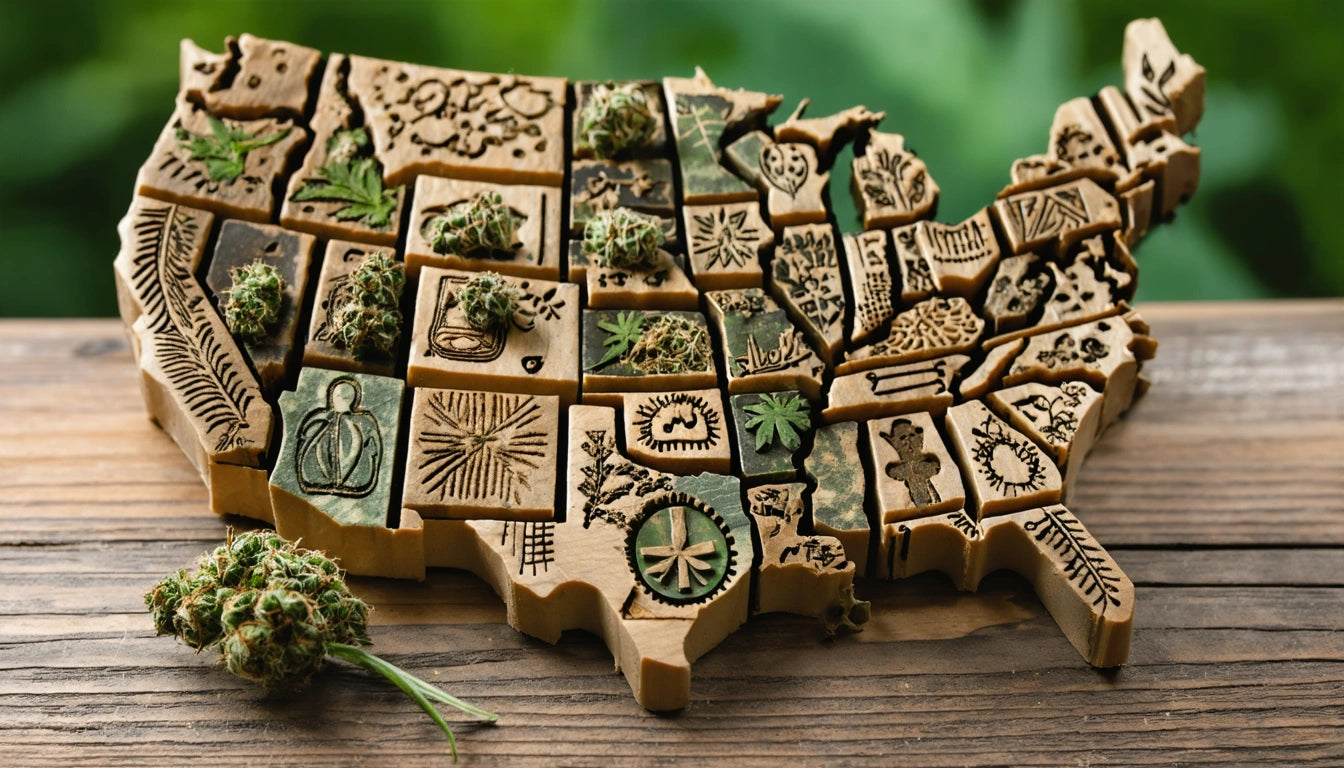Table of Contents
- Current Medical Weed Landscape in the United States
- States with Comprehensive Medical Marijuana Programs
- States with Limited Medical Marijuana Programs
- States Where Medical Weed Remains Illegal
- Qualifying Conditions for Medical Marijuana
- Reciprocity Between States: Can You Buy Medical Weed in Another State?
- Emerging Trends and Future Outlook for Medical Cannabis Legalization
Medical Weed Legalization: A State-by-State Overview
The landscape of medical marijuana legalization in the United States continues to evolve rapidly. Understanding where medical weed is legal and how many states have legalized medical weed is crucial for patients, healthcare providers, and industry stakeholders alike. This comprehensive overview examines the current status of medical cannabis programs across the country.
Current Medical Weed Landscape in the United States
As of 2024, medical marijuana has been legalized in 38 states, along with the District of Columbia, Puerto Rico, and the U.S. Virgin Islands. This represents a significant shift in policy over the past two decades, with more states recognizing the therapeutic potential of cannabis for various medical conditions.
The remaining 12 states maintain varying degrees of prohibition, though some have implemented limited programs allowing for CBD or low-THC products for specific conditions. Understanding this patchwork of regulations is essential for patients seeking legal access to medical cannabis treatments.
States with Comprehensive Medical Marijuana Programs
Most states with medical marijuana programs offer comprehensive access, allowing patients with qualifying conditions to obtain and use a variety of cannabis products. These states typically have established dispensary systems, patient registries, and legal protections for qualified users.
Notable comprehensive program states include:
- California (1996) - The first state to legalize medical marijuana
- Colorado (2000) - Known for its mature medical program alongside recreational use
- New York (2014) - Recently expanded its previously restrictive program
- Florida (2016) - Has one of the fastest-growing patient populations
- Pennsylvania (2016) - Robust program with strong patient protections
These states generally allow patients to access a wide range of cannabis products, including flower, concentrates, edibles, and topicals. Many also permit home cultivation for personal medical use, though limits vary by state.
States with Limited Medical Marijuana Programs
Several states have implemented more restrictive medical cannabis programs that limit the types of products available, qualifying conditions, or methods of consumption. These limited programs often restrict THC content or only permit CBD products with minimal THC.
States with more limited programs include:
- Texas - Low-THC cannabis oil only for specific conditions
- Georgia - Low-THC oil only, no dispensary system
- Wisconsin - Only CBD oil with minimal THC is permitted
- Iowa - Limited product types and qualifying conditions
- Kentucky - Recently passed limited medical program
In these states, patients often face significant challenges accessing medicine, with some programs requiring physicians to "recommend" rather than "prescribe" cannabis, and others lacking in-state production facilities entirely.
States Where Medical Weed Remains Illegal
Despite the national trend toward legalization, several states continue to prohibit medical cannabis entirely. These states maintain cannabis as a Schedule I substance with no recognized medical use under state law.
States where medical weed remains fully illegal include:
- Idaho
- Nebraska
- Kansas
- South Carolina
- Tennessee
- North Carolina
Some of these states have seen legislative efforts or ballot initiatives to establish medical programs, but these have so far been unsuccessful. Patients in these states often resort to relocating to access legal medical cannabis or turn to our premium cannabis processing equipment for personal use in states where home cultivation is permitted.
Qualifying Conditions for Medical Marijuana
The specific health conditions that qualify patients for medical marijuana vary by state, though there are common conditions recognized across most programs. Qualifying conditions typically include:
- Chronic pain
- Cancer
- Epilepsy and seizure disorders
- Multiple sclerosis
- PTSD
- HIV/AIDS
- Glaucoma
- Crohn's disease and inflammatory bowel conditions
Some states have more expansive lists that include conditions like anxiety, migraines, or autism spectrum disorders, while others maintain more restrictive approaches. Several states also allow physician discretion to recommend cannabis for conditions not specifically listed if they believe patients would benefit.
Reciprocity Between States: Can You Buy Medical Weed in Another State?
A common question among medical marijuana patients is: can I buy medical weed in another state with my home state's card? The answer depends on reciprocity agreements between states.
States that currently offer some form of reciprocity include:
- Arizona
- Maine
- Michigan
- Nevada
- New Hampshire
- Oklahoma
- Rhode Island
- Utah
However, reciprocity rules vary significantly. Some states allow out-of-state patients to purchase from dispensaries, while others simply provide legal protections for possession but not purchasing rights. Patients should always research the specific regulations before traveling with or attempting to purchase medical cannabis in another state.
Emerging Trends and Future Outlook for Medical Cannabis Legalization
The medical marijuana landscape continues to evolve rapidly. Several trends are worth noting:
- States with limited programs are gradually expanding access and product availability
- Research into cannabis efficacy is growing, potentially supporting more conditions
- Federal reform efforts could dramatically change the national landscape
- Standardization of testing and product safety regulations is increasing
- Integration with traditional healthcare systems is slowly improving
As more data becomes available on the therapeutic benefits of cannabis, additional states may join the ranks of those that have legalized medical marijuana. The continued shift in public opinion and growing acceptance within the medical community suggest that the trend toward broader legalization will likely continue.
For patients and providers navigating this complex landscape, staying informed about the specific regulations in their state remains essential for legal compliance and optimal therapeutic outcomes.











Leave a comment
All comments are moderated before being published.
This site is protected by hCaptcha and the hCaptcha Privacy Policy and Terms of Service apply.